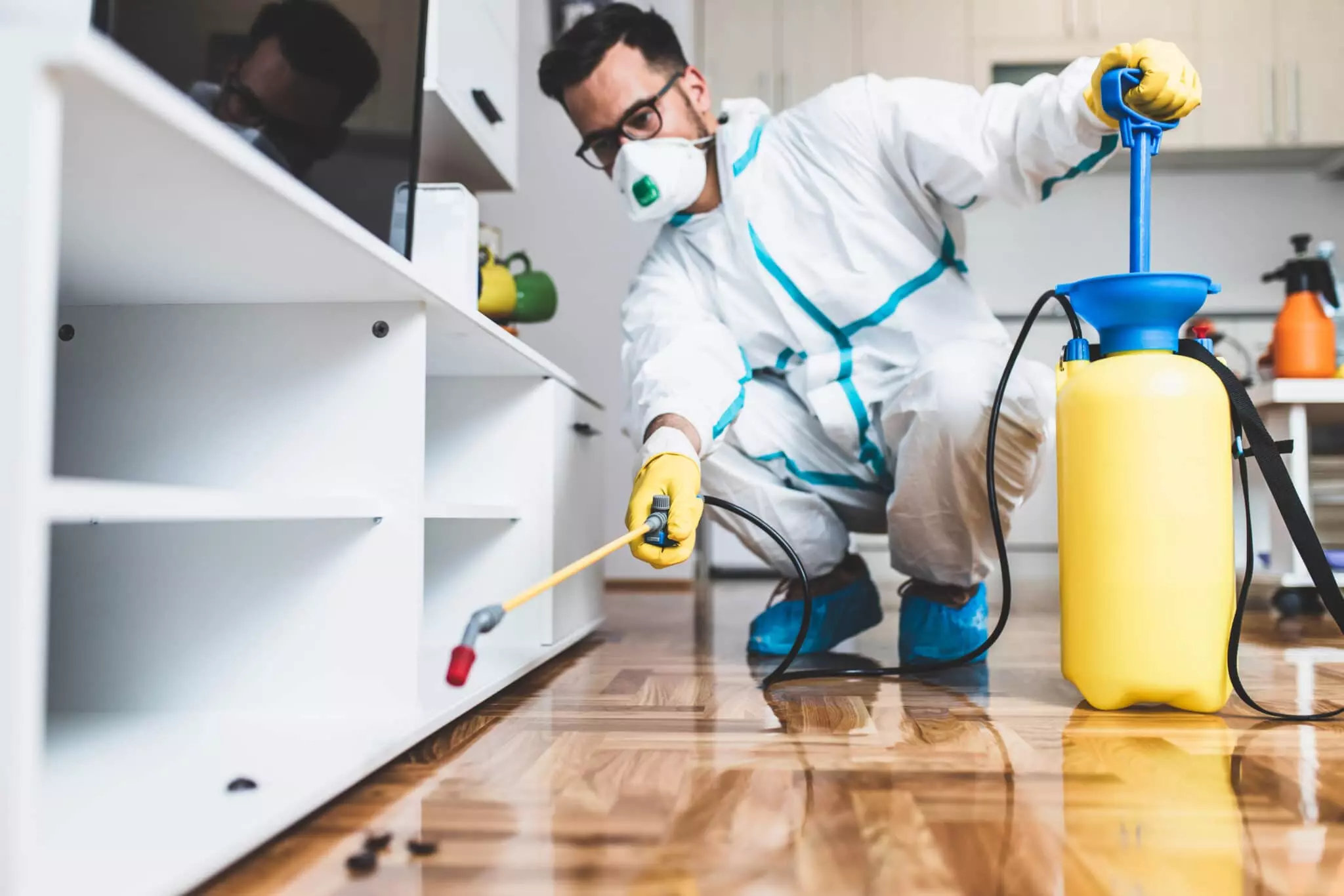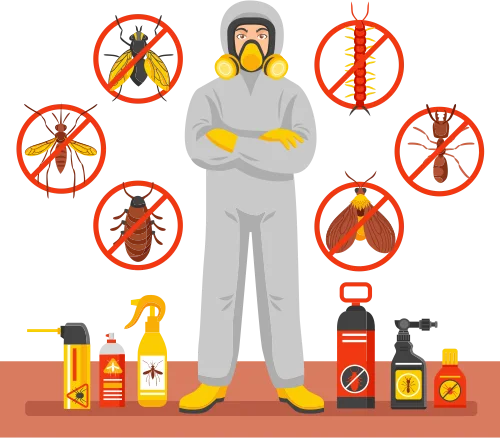Safe and Dependable Parasite Control for Lasting Protection
Effective parasite monitoring calls for a complex strategy that balances eco-friendly stability with the requirement for effective pest suppression. The subtleties of these techniques might not be instantly clear, prompting a more detailed assessment of the methods that can lead to lasting bug control outcomes.
Recognizing Parasite Control Techniques
Insect control incorporates a range of methods targeted at managing and eradicating unwanted bugs and rats that can endanger both health and property. Recognizing these techniques is essential for efficient pest monitoring.
The key groups of parasite control techniques include mechanical, organic, and chemical approaches. Mechanical approaches involve physical barriers and traps to avoid insect entrance and capture unwanted species. For instance, making use of screens on windows or utilizing sticky traps can substantially decrease parasite populations without introducing damaging materials.

Chemical pest control is often one of the most acknowledged approach, making use of pesticides to remove bugs. These chemicals can be reliable but must be utilized with care to avoid damaging impacts on non-target types and the setting.
Benefits of Eco-Friendly Solutions
How can environmentally friendly remedies transform bug control techniques? The fostering of green insect control approaches offers many benefits, significantly boosting the effectiveness and safety of insect monitoring (exterminator coquitlam). To start with, these remedies use natural active ingredients, decreasing the dependence on dangerous chemicals that can pose dangers to human health and wellness and the atmosphere. This change not only safeguards pets and families yet also minimizes the capacity for dirt and water contamination.

An additional benefit is the positive influence on regional biodiversity. Environment-friendly services are created to target certain pests while maintaining helpful insects and wildlife, promoting a balanced environment. This technique straightens with the expanding customer demand for sustainable practices, improving the track record of pest control carriers.
Integrated Pest Administration Techniques
The implementation of green options normally leads to the fostering of Integrated Parasite Administration (IPM) strategies, which additionally boost parasite control efficiency. IPM is an all natural strategy that integrates several strategies to handle bug populaces while decreasing ecological effect. This technique stresses using organic, cultural, mechanical, and chemical controls, making certain a lasting and balanced method of insect monitoring.
One essential element of IPM is the comprehensive evaluation of parasite task and ecological problems. By keeping track of parasite populaces and recognizing their life process, experts can execute targeted interventions that disrupt the insect's environment or lifecycle, minimizing dependence on chemical pesticides. Furthermore, social more tips here techniques such as plant turning and environment control can substantially reduce insect facility and reproduction.
An additional vital element is using organic control representatives, such as advantageous insects or microorganisms, which can normally reduce insect populaces. When chemical applications are required, IPM prioritizes the use of low-risk pesticides and uses them selectively, lessening exposure to non-target microorganisms and people.
Including IPM methods not only enhances pest control effectiveness yet likewise advertises a safer ecological community, lining up with the growing demand for sustainable techniques in pest monitoring.
Safe Practices for Homeowners
Recognizing the importance of secure techniques in bug control can empower home owners to efficiently take care of parasite issues while guarding their health and the setting. Executing precautionary measures and non-toxic approaches is important in decreasing exposure to hazardous chemicals.
Property owners ought to first examine their environment for conditions that draw in pests, such as standing food, water, and mess waste. Routinely cleansing and sealing entrance points can hinder insects from attacking the home. Using natural deterrents, such as important oils or diatomaceous earth, can give reliable choices to chemical pesticides.
When chemical therapies are necessary, homeowners must select products that are particularly identified as safe for household usage. It is necessary to follow application guidelines carefully to avoid too much exposure. Moreover, using targeted therapies in areas where insects are identified, rather than blanket spraying, can significantly lower chemical use.
Last but not least, preserving open interaction with bug control professionals is essential. Property owners need to ask about the safety and security of items utilized and demand green alternatives whenever feasible. By taking on these secure practices, home owners can develop link a healthier living setting while properly taking care of pest problems.

Tips for Long-Term Protection
Establishing an insect administration technique that highlights lasting defense can substantially enhance the efficiency of the safe techniques formerly reviewed. To accomplish this, house owners need to implement regular examinations of their building, concentrating on hidden areas such as attic rooms, cellars, and crawl spaces. Early detection of insect task is essential in preventing problems from taking hold.
Furthermore, maintaining a clean setting is important. This consists of correct food storage, immediately cleansing spills, and regularly disposing of waste. These methods reduce attractants that draw parasites right into the home. Furthermore, securing access points, such as fractures around doors and windows, can effectively obstruct possible bug accessibility.
Landscaping must also be taken into consideration; keeping plants trimmed and keeping a distance in between greenery and the home lessens hiding areas for bugs. Using natural deterrents, such as necessary oils or diatomaceous check that earth, can additionally prevent infestations without resorting to harsh chemicals.
Last but not least, teaming up with an expert parasite control service for periodic evaluations can offer an additional layer of protection. These professionals can use customized recommendations and progressed therapies, ensuring that your home remains safeguarded against insects in the long-term.
Final Thought
Finally, trustworthy and risk-free parasite control needs a diverse approach that stresses environmentally friendly methods and integrated parasite monitoring. By carrying out all-natural deterrents, carrying out routine assessments, and keeping correct hygiene, homeowner can substantially reduce bug populations while safeguarding helpful bugs and the setting. Collaboration with professional parasite control solutions boosts the efficiency of these techniques, making certain tailored options that give enduring defense and satisfaction against future infestations.
Effective parasite administration calls for a multifaceted method that balances ecological stability with the requirement for reliable insect suppression. The fostering of environmentally friendly parasite control methods provides countless advantages, dramatically improving the effectiveness and safety and security of parasite administration.The application of environmentally friendly services normally leads to the fostering of Integrated Pest Management (IPM) strategies, which better improve pest control efficacy. exterminator coquitlam. By checking insect populations and recognizing their life cycles, practitioners can carry out targeted treatments that disrupt the bug's habitat or lifecycle, decreasing dependence on chemical pesticides.In verdict, risk-free and trustworthy bug control requires a complex technique that stresses environment-friendly methods and integrated insect monitoring